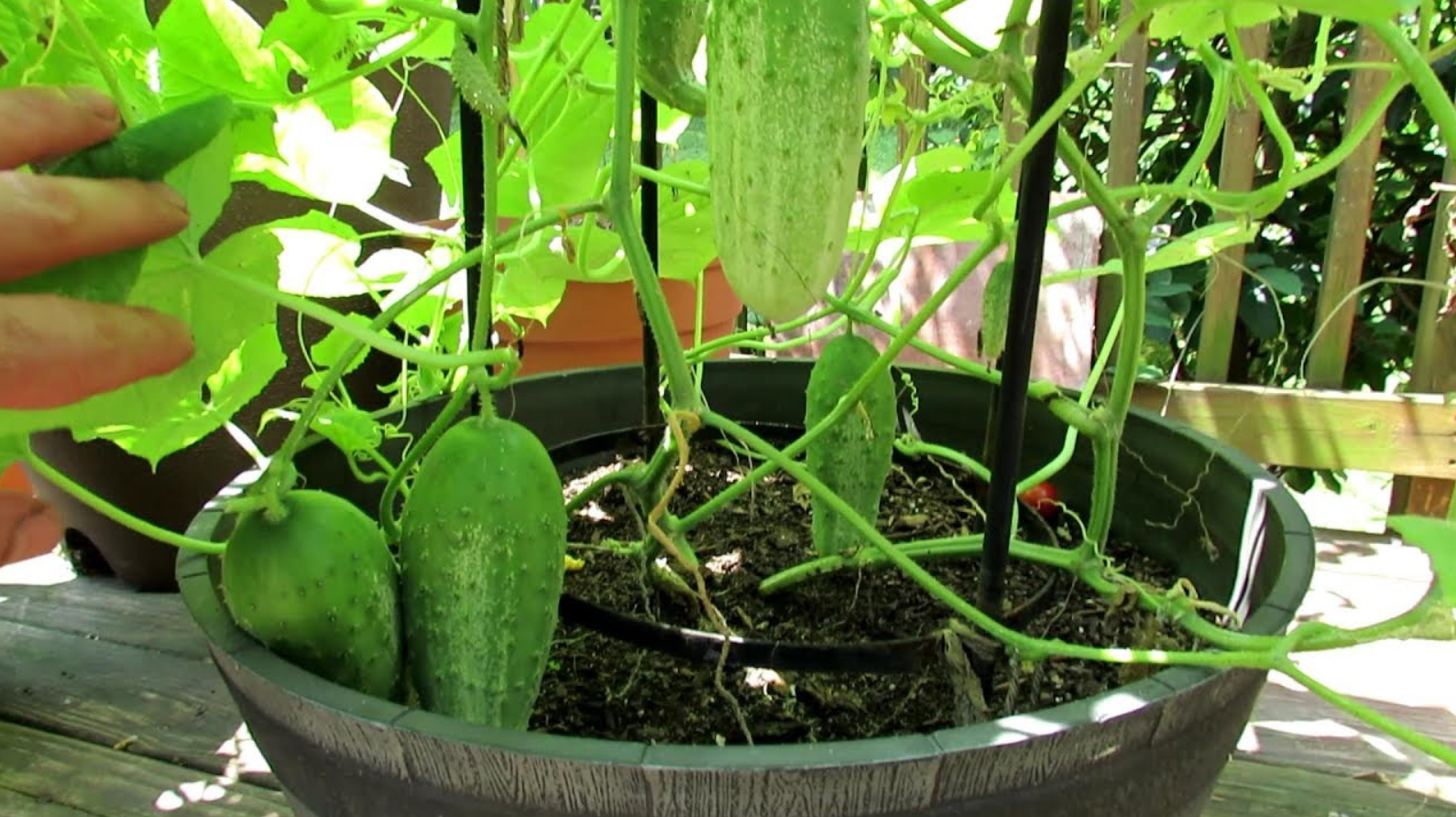Growing young cucumbers at home is a fun and gratifying gardening endeavour, ideal for people with limited space or anybody looking to add some green to their indoor or outdoor spaces. Container gardening enables you to grow fresh, crisp cucumbers right at your fingers. This article will teach you all you need to know to successfully raise baby cucumbers in containers, from choosing the correct pot to harvesting your first crop.
Choosing the Perfect Container
Size
To allow cucumber roots to grow properly, choose a container that is at least 12 inches deep and broad.
Drainage
Make sure the container has drainage holes to avoid waterlogging, which can lead to root rot.
Material
Choose containers made of plastic, ceramic, or cloth, as each has advantages in water retention and temperature regulation.
Choosing the Right Cucumber Variety
Bush varieties
Compact or bush cucumbers are good for containers since they take up less room and produce vines that are easier to manage.
Dwarf varieties.
Consider dwarf cucumber varieties developed specifically for container gardening, which are ideal for compact settings while still producing copious fruit.
Planting baby cucumbers in containers.
Soil
To ensure healthy plant growth, use a nutrient-rich, well-drained potting mix.
Sowing seeds
Plant the seeds 1 inch deep in the soil, spacing them according to the package directions.
Germination
Keep the soil uniformly moist to encourage germination. Watering with a spray bottle is gentle and does not disrupt the seeds.
Thinning
Once the seedlings have developed their first true leaves, thin them out, keeping one or two of the strongest plants in each pot.
Care for Your Cucumber Plants
Sunlight
Place containers in areas that receive at least 6-8 hours of direct sunlight per day.
Watering
Keep the soil wet but not saturated. Water the plant at its base to avoid wetting the leaves, which can lead to fungal illnesses.
Support
As the plants mature, install a trellis, stakes, or other support systems to promote vertical growth and conserve space.
Fertilisation
To promote cucumber plant development and fruit production, apply a balanced liquid fertiliser every 2-3 weeks.
Managing pests and diseases
Inspection
Examine your plants on a regular basis for pests like aphids, cucumber beetles, and spider mites, as well as illnesses like powdery mildew.
Natural Solutions
To naturally tackle pests, introduce beneficial insects such as ladybirds and use neem oil or insecticidal soap.
Pruning
To avoid infection spread, remove any diseased or damaged leaves as soon as possible.
Harvesting your baby cucumbers
When to harvest?
Baby cucumbers are ready to harvest approximately 50-60 days after sowing.
Size matters.
Cucumbers should be picked when they are 4-6 inches long to have the greatest flavour and texture.
Keep It Going
Cucumbers should be harvested on a frequent basis to stimulate the plant’s fruit production.
Growing young cucumbers in containers is a simple but satisfying way to enjoy fresh, local vegetables, even in small areas. With the correct container, a sunny location, and little TLC, you may reap the benefits of your labour in no time. Consider the pleasure of picking crisp, tasty cucumbers straight from your garden and presenting them fresh in salads, snacks, or beverages.
After reading this text you can also read about: 1 Drink That Will Remove Your Stubborn Stomach Fat | MELT BELLY FAT IN 3 DAYS!! No Exercise No Diet



